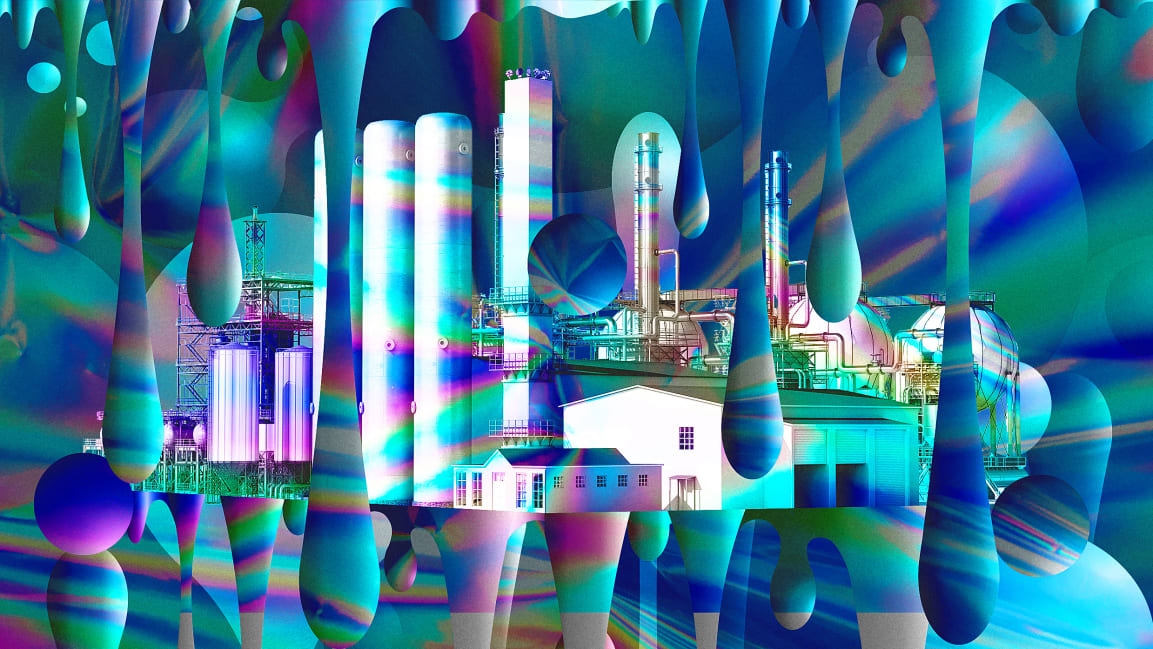Fossil fuel companies are betting on plastic as their next big source of profits
As car companies and utilities plan for an electric future, the fossil fuel industry is betting on plastic to help fill a gap in sales. But a new report says that the industry is risking $400 billion by investing in new petrochemical infrastructure that could become stranded assets.
“Oil companies are banking on plastics because all the other expected growth is under threat,” says Kingsmill Bond, an energy strategist at the nonprofit Carbon Tracker and an author of the report, produced along with Systemiq, a London-based company that works on system changes in materials use. “They think plastics are the only sure bet for growth.” A 2019 forecast from BP, for example, projected that plastics would account for 95% of the growth in net demand for oil over the next two decades. Right now, plastics account for only around 9% of oil demand.
The pandemic has temporarily boosted demand for plastics used in masks and takeout containers (and plastic bags, after the industry lobbied to reverse plastic bag bans, even though health experts say that reusable bags are still safe to use.) But the growing tide of recognition about plastic’s waste problems—an estimated 11 million metric tons of plastic ends up in the ocean every year—means that demand may shrink. In June, the European Union proposed a new €800-per-ton tax on plastic; EU laws also ban some single-use plastic products, aim to reduce the use of plastic food containers, and require plastic bottles to use an increasing amount of recycled plastic. Major corporations that rely on plastic packaging, such as PepsiCo and Coca-Cola, have committed to shift to reusable, compostable, and recyclable packaging. An increasing number of consumers say that they’re willing to spend more to avoid plastic.
Because of overproduction, prices for plastic have already dropped steeply. Earlier this year, a multi-billion-dollar plastics factory planned near Pittsburgh, designed to make plastic from fracked natural gas, was delayed indefinitely because the economics no longer worked. Another recent report noted the financial challenges that Shell faces at another massive plastics plant planned in Pennsylvania, which expects to produce 1.6 million metric tons of plastic a year when it opens. Since the project began planning, the price of plastic has fallen 40%.
The cheap price of virgin plastic is also a challenge for the recycled plastic market that has to compete with it. But regulation can change that, says Bond. “Low prices of virgin plastic is a huge short-term challenge for recycled plastics, of course,” he says. “The answer is that governments need to step in and make the producers of virgin plastics pay for the externalities they impose on society. Or oblige plastics users to use recycled plastics. Or massively scale up the recycling industry and get costs down. Europe is doing all three.” The new report says that plastics impose a cost on society of $1,000 a ton, from carbon dioxide (around five tons of climate pollution per ton of plastic), ocean pollution, collection costs, and health costs. If plastics grow at the rate that industry projects, the report says, it won’t be possible to meet the goals of the Paris Agreement.
The industry, unsurprisingly, is fighting against regulation. Lobbyists are reportedly trying to intervene in U.S.-Kenya trade talks to get Kenya to reverse a plastic bag ban. “U.S. lobbyists are likely to succeed in the U.S. for so long as they have support from the federal government,” Bond says. “But this is a risky strategy, because once that support is lost they will have a very vulnerable bloated industry which pollutes with impunity.”
Instead, he argues, the industry should be investing more in alternatives, such as the infrastructure to make recycled plastic. “As change comes through, petrochemical companies need to move from the old system to the new system in order to survive,” he says. “So from virgin plastics to recycled plastics. Systemiq, for example, has calculated that it is much cheaper for governments and companies to build circular plastic systems rather than linear ones. [Companies that have made the shift] have performed far better than the dinosaurs that resisted change and are now facing massive write-downs.”
(6)



